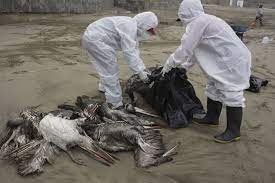Bird flu, also known as avian influenza, is a viral infection that primarily affects birds. However, in rare cases, it can be transmitted to humans and cause severe illness, and even death. The H5N1 strain of bird flu has been spreading rapidly across the world, and there are concerns that it could cause the next human pandemic. In this article, we’ll take a closer look at bird flu and what you need to know to stay safe.
What is Bird Flu?
Bird flu is a highly infectious viral disease that primarily affects birds, including chickens, ducks, and turkeys. The virus can be transmitted through contact with infected birds, their feces, or surfaces contaminated with the virus. Bird flu viruses are divided into two types based on their ability to cause illness in birds: low pathogenic avian influenza (LPAI) and highly pathogenic avian influenza (HPAI). The H5N1 strain of bird flu is highly pathogenic and can cause severe illness and death in both birds and humans.
Symptoms of Bird Flu in Humans
The symptoms of bird flu in humans can vary from mild to severe, and can include:
- Fever
- Cough
- Sore throat
- Muscle aches
- Headache
- Difficulty breathing
- Pneumonia
- Acute respiratory distress syndrome (ARDS)
- Multiple organ failure
- Death
It’s important to note that not everyone who is infected with bird flu will develop symptoms. However, people with weakened immune systems, young children, and older adults are at higher risk of developing severe illness and complications.
Transmission of Bird Flu to Humans
The H5N1 strain of bird flu can be transmitted to humans through close contact with infected birds or their droppings. People can also become infected by coming into contact with surfaces contaminated with the virus, such as cages, coops, or vehicles that have been used to transport infected birds. There have also been rare cases of human-to-human transmission of the virus, although this is thought to be limited.
Prevention of Bird Flu
Preventing the spread of bird flu requires a multi-pronged approach that includes:
- Vaccinating birds: Vaccinating domestic poultry can help prevent the spread of bird flu and reduce the risk of transmission to humans.
- Practicing good hygiene: People who work with birds or live in areas where bird flu is prevalent should practice good hygiene, including washing their hands frequently and wearing personal protective equipment when handling birds.
- Avoiding contact with sick birds: People should avoid contact with sick birds or birds that have died from bird flu.
- Cooking poultry thoroughly: Cooking poultry to an internal temperature of at least 165°F (74°C) can kill the virus and reduce the risk of infection.
Is Bird Flu the Next Human Pandemic?
The H5N1 strain of bird flu has been circulating in birds since 1996 and has caused numerous outbreaks in poultry farms across Asia, Europe, and Africa. Although there have been sporadic cases of human infection with the virus, there has not been sustained human-to-human transmission of the virus. However, there are concerns that the virus could mutate and become more transmissible among humans, potentially leading to a human pandemic.
Conclusion
Bird flu is a serious disease that can cause severe illness and even death in both birds and humans. While the risk of human infection is currently low, it’s important to take precautions to prevent the spread of the virus. By practicing good hygiene and avoiding contact with sick birds, we can help reduce the risk of infection and protect ourselves and our communities from this potentially deadly disease.

